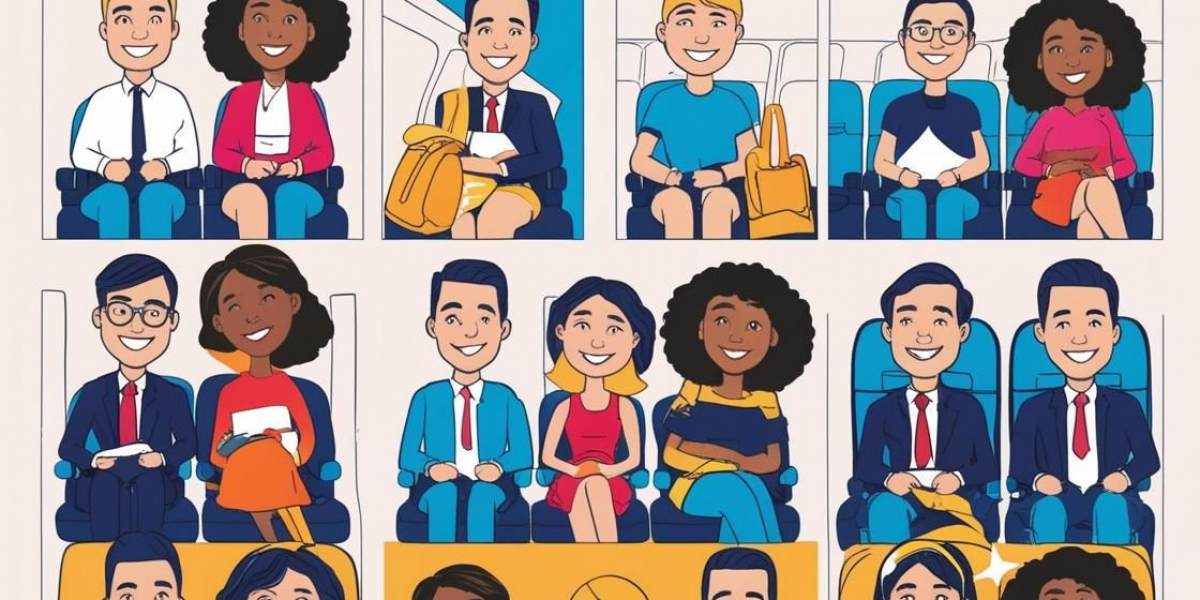This article explores what happens if i skip seat selection, the potential pros and cons, and tips for making the best decision for your trip.
What Does Skipping Seat Selection Mean?
When you skip seat selection, the airline assigns you a seat automatically, typically at check-in or just before boarding. This process is random, and while it may seem like a convenient way to avoid extra fees, it limits your control over where you’ll sit on the plane.
What Happens If You Skip Seat Selection?
- Random Seat Assignment
- Airlines use an automated system to assign unselected seats. If you skip choosing a seat, the system places you in any available seat, often in the remaining unbooked areas of the plane.
- Potential for Unfavorable Seats
- Skipping seat selection increases your chances of ending up in less desirable locations, such as:
- Middle seats.
- Seats near the lavatory.
- Seats in the back of the plane.
- Separate Seating for Groups
- If you’re traveling with family or friends, there’s no guarantee you’ll be seated together. Airlines prioritize filling empty seats efficiently, not keeping groups together.
- No Additional Costs
- One of the benefits of skipping seat selection is that you avoid extra fees. Many airlines charge for choosing seats, especially for preferred or extra-legroom options.
When Skipping Seat Selection Works
While skipping seat selection has drawbacks, there are situations where it might be a practical choice:
- Solo Travelers
- If you’re traveling alone and don’t have specific seating preferences, being randomly assigned a seat may not matter much.
- Short Flights
- For short-haul flights, the inconvenience of a less desirable seat is more manageable, making the cost savings worthwhile.
- Flexible Travelers
- If you’re not picky about your seat location and are willing to accept whatever is assigned, skipping seat selection can be a budget-friendly option.
When You Should Consider Choosing a Seat
For certain travelers, selecting a seat is worth the added expense.
- Traveling with a Group
- If you’re flying with family or friends, seat selection ensures you can sit together, which can make the journey more enjoyable.
- Long-Haul Flights
- For flights lasting several hours, comfort becomes a priority. Choosing a window seat to rest or an aisle seat for easy access to the lavatory can make a big difference.
- Special Needs or Preferences
- Passengers with mobility issues, children, or those needing extra legroom benefit from selecting seats that meet their needs.
- Extra Comfort
- Preferred seats, such as those in the exit row or near the front of the plane, often provide extra legroom or quicker boarding and deplaning, making them attractive options.
Tips for Travelers Skipping Seat Selection
If you decide to skip seat selection, here are some tips to make the process smoother:
- Check In Early
- Checking in as soon as online check-in opens increases your chances of getting a better seat since unassigned seats are distributed on a first-come, first-served basis.
- Be Prepared for Change
- Understand that skipping seat selection means accepting where the airline places you, even if it’s not ideal.
- Consider Last-Minute Upgrades
- Some airlines offer discounted seat upgrades closer to departure. Keep an eye out for these deals if you want to improve your seating without paying full price upfront.
- Travel Light
- If you’re seated near the back of the plane, be prepared for limited overhead bin space. Bringing a smaller carry-on can help avoid storage issues.
Airline-Specific Seat Assignment Policies
Each airline has its policies regarding seat selection and automatic assignment. For example:
- American Airlines: Offers a mix of free and paid seat selection options. Skipping selection results in automatic assignment at check-in.
- Delta Airlines: Allows seat selection for a fee on basic economy tickets; skipping it leads to random seat assignment.
- Southwest Airlines: Does not have pre-assigned seating; passengers choose seats during boarding based on their check-in order.
Conclusion
Skipping seat selection can save money but comes with trade-offs like reduced seating options and the risk of being separated from travel companions. Whether it’s the right choice for you depends on your travel priorities, group size, and the type of trip you’re taking. By weighing the pros and cons and understanding the process, you can make an informed decision that suits your needs.
If comfort and convenience are important, selecting your seat might be worth the investment. However, for budget-conscious or flexible travelers, skipping seat selection could be a smart way to save on airfare.
American Airlines Group Travel Enjoy discounted fares, flexible booking options, and dedicated support for groups of 10 or more travelers.









